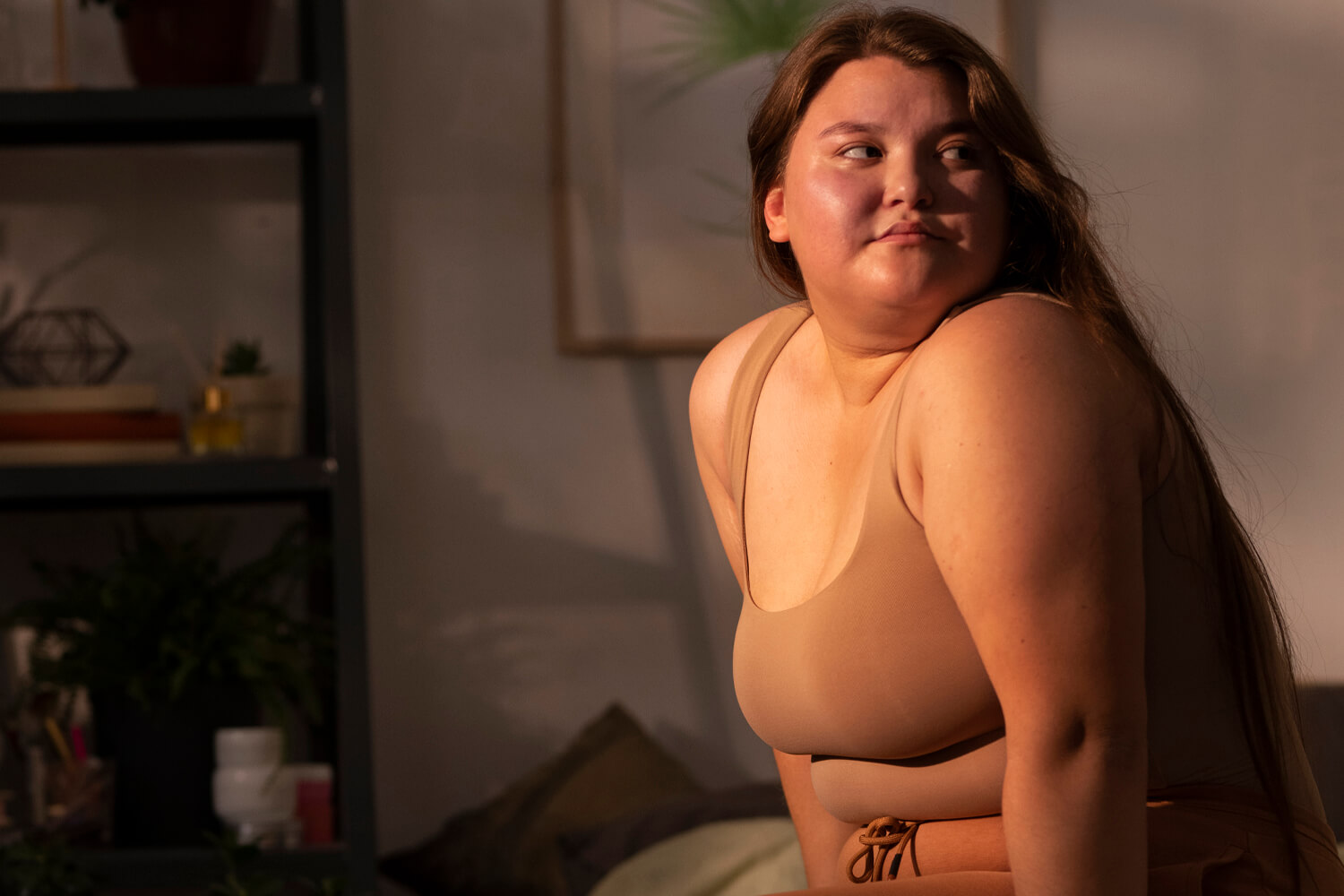What are body image difficulties?
- Body image disturbances refer to negative perceptions, thoughts, and emotions individuals may have about their physical appearance.
- It involves a distorted perception of one’s own body, often leading to dissatisfaction, preoccupation, and distress.
What are the common signs and symptoms?
- Preoccupation with perceived flaws or imperfections in physical appearance.
- Frequent comparisons of one’s body with others, often leading to feelings of inadequacy.
- Avoidance of social situations or activities due to body-related concerns.
- Engaging in excessive grooming or checking behaviors to camouflage perceived flaws.
- Frequent negative self-talk or criticism regarding one’s appearance. Development of body dysmorphic disorder (BDD) or eating disorders, such as anorexia or bulimia.
What are the common causes?
- Sociocultural factors: Pressure from media, societal beauty standards, and unrealistic portrayals of idealized bodies can contribute to body image disturbances.
- Childhood experiences: Negative comments, teasing, or bullying about one’s appearance during childhood may impact body image perception.
- Genetic and biological factors: Certain genetic predispositions and neurobiological factors can influence body image disturbances.
- Psychological factors: Underlying mental health conditions, such as depression, anxiety, or obsessive-compulsive disorder, can contribute to body image issues.
What are the treatment options available?
- Cognitive-Behavioral Therapy (CBT): CBT helps individuals identify and challenge negative thoughts and beliefs about their body, develop healthier self-perceptions, and adopt more adaptive coping strategies.
- Acceptance and Commitment Therapy (ACT): ACT focuses on accepting one’s body as it is and aligning actions with personal values, promoting psychological flexibility and improved body image.
- Support groups and psychoeducation: Group therapy and educational programs provide individuals with a supportive environment to share experiences, gain insight, and learn coping strategies.
- Medication: In some cases, medication may be prescribed to target underlying mental health conditions, such as depression or anxiety, which contribute to body image disturbances.
- Body-focused therapies: Therapeutic approaches like mirror exposure therapy or body image rescripting can help individuals gradually confront and reframe their negative body image beliefs. Remember, seeking professional help from a qualified mental health provider is crucial for an accurate diagnosis and appropriate treatment tailored to individual needs.
Why choose IKSANA ?
At Iksana, our Chief Psychiatrist, Dr. Arun Singh, conducts a comprehensive assessment to uncover the root cause of your concerns. Not only does he meticulously elucidate the intricacies of your treatment, but he also explores potential aggravating factors. Our holistic treatment approach takes into account various aspects, such as dietary adjustments and lifestyle modifications, ensuring that medication serves as a supportive element to address your needs effectively.
With invaluable experience gained from working at a premier mental healthcare center within the NHS (UK), coupled with a keen interest in researching cutting-edge treatments for mental health issues, Dr. Singh remains at the forefront of the field. At Iksana, we prioritize your overall well-being, recognizing you as a complete individual, from the core outward. Our goal transcends the mere alleviation of visible symptoms; we aspire to bring you closer to a better, more confident version of yourself.
Join us on a transformative journey of self-discovery and empowerment at Iksana, where Dr. Singh’s expertise merges with our unwavering commitment to your comprehensive care. Embrace the opportunity to unlock your full potential and experience a renewed sense of confidence and fulfillment.


